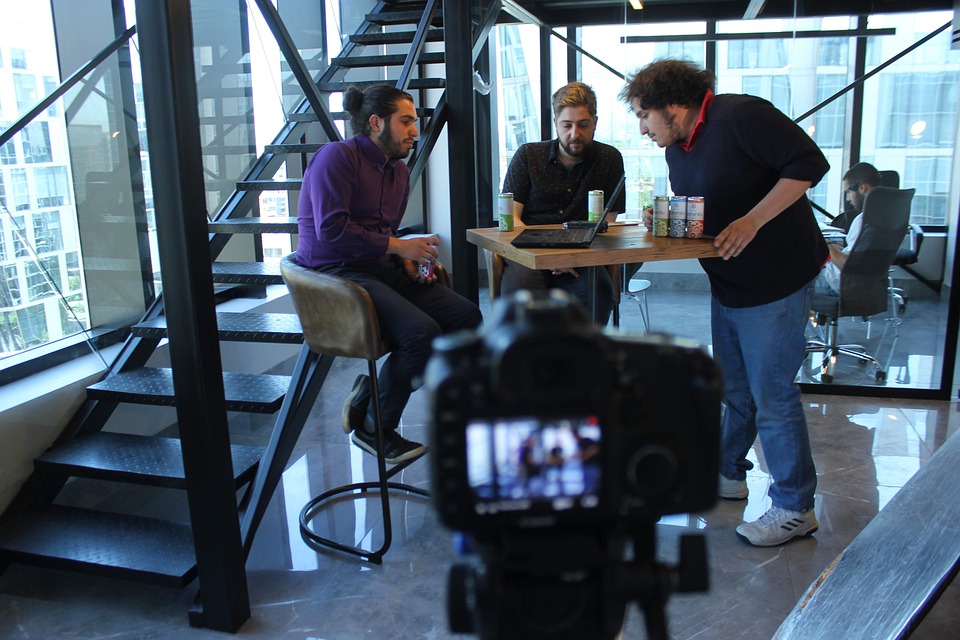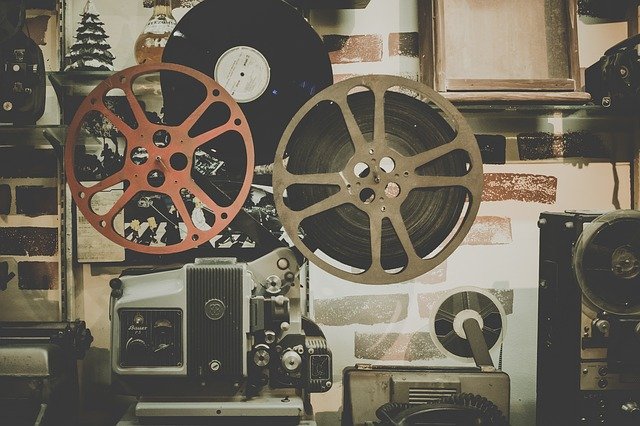Making Film
Making a film is one of the most rewarding hobbies that someone can have. It’s an opportunity for the individual to express themselves creatively, and it also helps improve skills in a variety of areas. It can be a rewarding experience for those who want a creative outlet.
Is Film Making a Good Hobby?

Film Making is a Fun Hobby
- A good hobby should also be pleasurable. Filmmaking is a very fun activity that can bring people together, and it allows for self-expression through storytelling. With the right tools, almost anyone can make a film no matter how big or small their budget is, from students to professionals who may want to try something new in their spare time.
- Filmmaking has been around for over 100 years now and there are many film education programs at universities around the world that expose even more people to this craft.
- It’s a great way to meet new people and make friends. Since filmmaking is such a collaborative process, you’ll inevitably end up working with other people on projects. And since you’ll likely be working with people who share your passion for film, you’re sure to make some great connections and friendships along the way.
- Filmmaking can be a great way to learn new skills—both technical skills like lighting and shot composition and soft skills like communication and teamwork.
- And lastly, filmmaking can be therapeutic; it’s been shown to help reduce stress and anxiety levels.
Challenges
There are several challenges involved with making a movie as well.
- First of all, there’s financing the project which needs careful planning and communication with financiers so that they feel comfortable about investing in it.
- The next challenge involves scheduling the project to ensure that everything goes as planned. There are many people involved with filmmaking, so managing all of them at the same time is also the responsibility of the director.
- There’s post-production which can take months depending on how big an editing team it has. This is because every video needs excellent sound design and other special effects should they be part of the story or not.
- If you want to make it professionally done there’s also color correction and grading for your film among other things which should be taken care of before releasing it for audiences worldwide.
20+ Common Movie and Film Terms
Whether you are an aspiring filmmaker or just like to watch, it is important to know the terminology so that you can understand what is happening in the movie. These terms are essential when understanding film:

- Antagonist: This character opposes or challenges the protagonist in their quest, sometimes with more extreme methods including violence. Plot points are key moments that happen during a movie that change it from being just one event to another, often building on each other until there is resolution at the end. One example would be when Harry Potter finally defeats Voldemort after many battles between them over various parts of his life.
- Cliffhanger: A Cliffhanger is a plot device that leaves the audience wondering about the outcome of an event. It’s often used in television and film to create suspense or anticipation for upcoming episodes.
- Climax: The climax is the point in a film where there is an extremity or change.
- Composer: The composer creates music to be played along with the dialogue and visuals on-screen. They create moods, feelings and emotions for that particular scene.
- Cue Card: A cue card contains all of the lines of dialogue written out by hand so that they can be read at the appropriate moment during filming.
- Director: The director is responsible for all creative decisions regarding actors, wardrobe designers, set design etc… They are also responsible for the overall look of the film.
- Dolby Stereo: Dolby stereo technology uses two channels rather than one single channel which separates sound into different frequencies making it easier to hear what’s going on in a movie theater versus someone watching it via their TV set home theatre system…This improves how things like explosions reverberate through speakers creating more realistic sounds as well as making dialogue easier to hear.
- Epilogue: This is a scene that follows the climax of a film and provides closure. It often shows what happens after the conclusion or brings insight into why things happen in the movie.”
- Film Grain: Film grain refers to natural imperfections present on traditional films, like flecks from scratches on negatives or microscopic dust particles. They are not considered errors but rather they add texture and authenticity to movies. Some viewers may find it distracting while others believe it adds realism.
- Flashback: A flashback is used when there’s an important event happening during time periods shown throughout the first half of a film which will be revealed at some point later in order for it all to make sense…For example, a character is remembering a traumatic event from their past.
- Film Festival: Film festivals are organized events which show films as well as other related media such as trailers and advertisements for coming attractions, interviews with creators as they appear at screenings and meetings with directors on behalf of their own work.
- Frame: Frames are the individual images that make up film. A frame rate refers to how many frames of video there will be in one second, and it’s measured in Hertz (Hz).
- Insert Shot: An insert shot can also sometimes refer to a close-up but usually means an image used within another scene which stands out because it differs from what is happening on screen at that moment. This could be anything such as someone reading or cooking dinner.
- Lighting: Lighting is important for creating moods during scenes. For example, if you want something dark and intimate then use low levels of light so people watching won’t see everything clearly like they would with bright lights.
- Pace: Pace is the speed at which a film moves. It could be slow or fast-paced, depending on what would make it more interesting.
- Pan: Panning refers to how shots move in an expansive motion from left to right and back again.
- Protagonist: The protagonist is typically (but not always) central to a plot and may have an opposing force known as the antagonist.
- Scan: Scanning means zooming in with focus so that something can appear larger than life without distortion happening on screen. This technique is often used for closeups of faces or small objects.
- Screenplay: A screenplay is the script for a movie that deals with dialogue, actions and events.
- Script: A script contains all of the dialogue spoken in a film. It also includes directions on camera angles, lighting and other technical aspects.
- Screenwriter: Screenwriters are people who write scripts based off of original ideas as well as adapted work such as novels, plays or even other movies. They might also have input into casting decisions and create outlines before filming starts.
- Spin-Off: A spin-off occurs when a character from a TV show or movie is used in another series. For example, after the success of ‘The Fresh Prince of Bel-Air’, Will Smith moved on to star in ‘Dancing with the Stars’.
- Stop Motion: This technique uses backgrounds and three dimensional figures which are manipulated by hand frame-by-frame to create animated films.
- Voice Over: Voice over refers to when an actor’s voice can be heard but they’re not seen throughout a film. It could be someone telling their story through a letter they’ve written as part of research for school work or it might happen during flashbacks where there needs to be background noise without showing them physically present.
After Thoughts
All in all, making films can be enjoyable for those who are dedicated to it. It requires patience but the end result will certainly be worth any sacrifice possible along the way.
Making a film is one of the most rewarding hobbies that someone can have. It’s an opportunity for the individual to express themselves creatively, and it also helps improve skills in a variety of areas. It can be a rewarding experience for those who want a creative outlet.